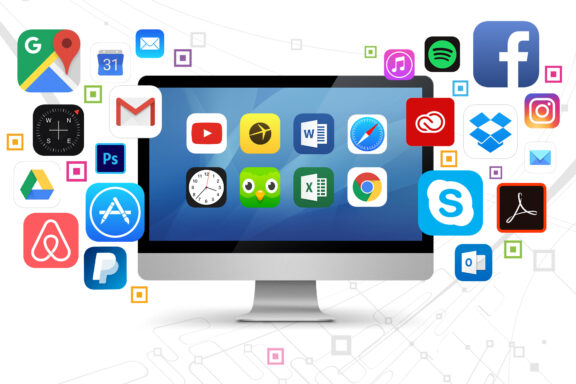Understanding Software: The Digital Backbone of Modern Technology

Introduction
Software is an essential component of modern technology, acting as the bridge between hardware and users. It encompasses a wide range of programs, applications, and operating systems that enable computers and devices to perform specific tasks. From basic utilities to advanced artificial intelligence systems, software is the driving force behind technological advancements, shaping the way we live, work, and communicate.
Types of Software
Software is broadly categorized into three main types: system software, application software, and programming software. System software, like operating systems and utility programs, manages hardware and software resources. Application software includes programs designed for end-users, such as word processors, web browsers, and games. Programming software provides tools for developers to write, test, and maintain programs, including compilers and debuggers.
Importance of Software in Various Industries
Software plays a pivotal role across diverse industries. In healthcare, it supports patient management systems and diagnostic tools. The financial sector relies on software for secure transactions and data analysis. In manufacturing, software automates processes, enhancing efficiency. Educational institutions use learning management systems, while entertainment thrives on multimedia software for streaming and gaming. This widespread adoption highlights software's versatility and necessity.
Emerging Trends in Software Development
The software landscape is constantly evolving, driven by emerging trends and technologies. Cloud computing enables access to software via the internet, reducing infrastructure costs. Artificial intelligence and machine learning integrate predictive analytics and automation into software applications. DevOps practices streamline development and deployment, fostering continuous innovation. Low-code and no-code platforms empower non-developers to create software solutions, democratizing technology.
Challenges in Software Development
Despite its significance, software development faces various challenges. Cybersecurity threats necessitate robust security measures. Compatibility issues arise with diverse hardware and software environments. Rapid technological advancements demand continuous updates and adaptations. Additionally, maintaining software quality while meeting tight deadlines remains a persistent challenge for developers worldwide.
Future of Software
The future of software promises exciting possibilities. Quantum computing may revolutionize data processing speeds, while augmented and virtual reality applications continue to expand. The Internet of Things (IoT) integrates software into everyday objects, creating smart environments. Additionally, ethical considerations surrounding artificial intelligence and data privacy will shape software development practices, ensuring a balance between innovation and responsibility.
Read More - https://www.marketresearchfuture.com/reports/software-market-11924
Conclusion
Software is the cornerstone of digital progress, driving innovation and improving lives. As technology evolves, software will continue to adapt, offering new opportunities and addressing emerging challenges. Whether in business, education, healthcare, or entertainment, software remains an indispensable force shaping our connected world.
- Art
- Causes
- Crafts
- Crypto
- Dance
- Drinks
- Defi
- Film
- Fitness
- Food
- Games
- Gardening
- Health
- Home
- Literature
- Music
- Networking
- Other
- Party
- Religion
- Shopping
- Sports
- Theater
- Wellness

